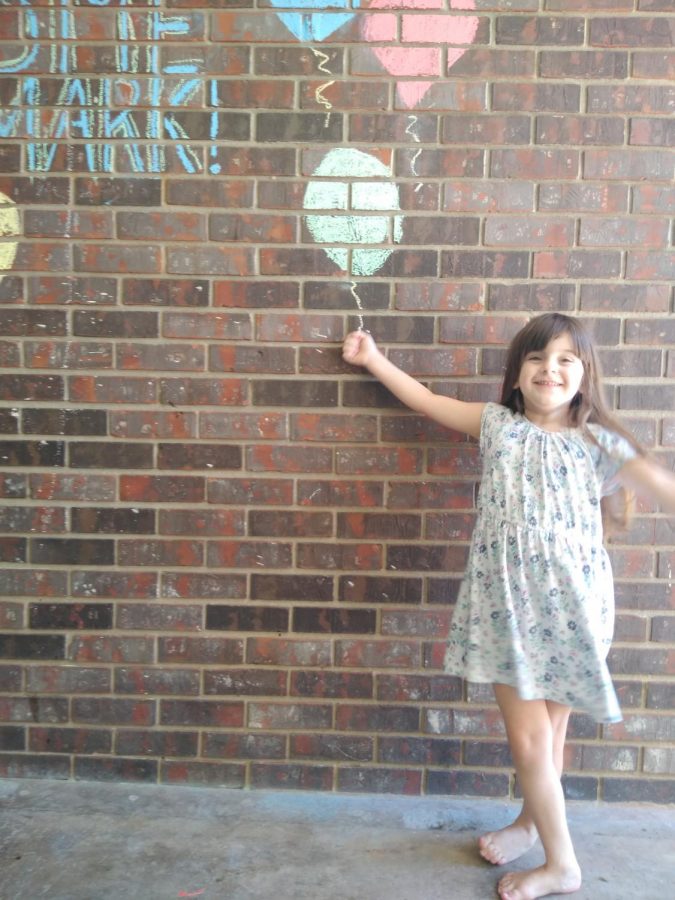Raising a Deaf Child as a Hearing Parent
An Interview with Courtney Owens
November 7, 2020
Courtney is a stay at home mother of two, a 3-month-old baby boy named Mark and a deaf 5 year-old-girl named Autumn. She never expected to have a deaf child, didn’t know there was even a chance of it happening, but she did. When Courtney had Autumn, she almost immediately suspected she was deaf; yet still, it took three years and several doctors for her to get an ABR and really know.
Before you had Autumn, did you ever expect to one day be here, having and raising a deaf child?
Courtney: No. Autumn is the only deaf person in our family on both mine and her father’s side. We didn’t know that we were carriers of a Genetic Marker that could be passed onto our children and cause childhood deafness. It took several doctors to finally listen to us to get her an ABR (Audio Brainstem Response test) to know the exact hearing loss she had. That took until she was three years old, when we found out she was severe in her left ear and profoundly deaf in her right ear.
What are some of the struggles of raising a deaf child?
Courtney: Making her understand things that are being said to her. And everyone underestimating what she is capable of.
What are some worries you had when you found out Autumn was deaf?
Courtney: How much I would hear ‘Why not get her a cochlear?’ I get that all the time. And that will never stop. I always get bombarded with that. And that is her choice, it’s not my choice. Also, I never knew what kind of life she could fully have and what schools she could attend; then, we toured our first deaf school, Florida School for the Deaf and Blind, and it changed everything for us. That was when we realized that the deaf can become actors, lawyers, doctors, and so much more. They just need their own voice and a major support system behind them besides the deaf community.
When did you first suspect that Autumn was deaf? How did that go down?
Courtney: I suspected since birth. At the hospital, they test babies’ hearing before sending them home. Autumn failed hers, and we were told to follow up at her newborn appointment with her primary doctor. Well, the nurse knew me personally and tried several times till she got a pass reading. Because of that, I was told by a few doctors that I was just an overbearing first-time mom. But afterwards, I kept seeing red flags that continued. The biggest was when she started saying mommy and daddy; she never did it in a way that identified us. It was just words, so I demanded an audiologist. It took three pediatricians to get the ABR.
Autumn started Kindergarten this year. How do you feel about that?
Courtney: Like most parents do, but it’s a little different for me. I didn’t have the typical sadness other parents did because I started her in a head start program in Florida when she was 2 to get her a chance with her language delay to get ready for Kindergarten. So, I didn’t have as much of the transition as most parents who put their kid in Kindergarten, and they’re like, ‘oh my baby’s going to school for the first time.’ It’s different for me; last year Autumn was only in school for half of the day. This year Autumn doesn’t get home until after four. And now that we are in a deaf school, I am beyond thrilled for school; she is doing great. She comes home telling me stories whereas before when she was mainstreamed, she would come home extremely aggravated and aggressive.
Aside from the obvious ASL bit, what important things did you have to learn when you realized Autumn was deaf and became part of the community? Was there anything you were surprised to learn?
Courtney: One thing that I was surprised to learn is that emersion is key. Emersion is key. To emerge yourself in the community, that is the biggest way you are going to learn everything. ASL, yes, is a big factor. Listening to doctors telling you to get a cochlear and telling you to pause ASL for one year, many parents don’t do it because that takes away from the child. I’ve learned that I could never do it if that’s what she wanted. She would still have her ASL.
Also, I was surprised to learn that hearing people in the deaf community are actually shunned because it is typically seen that hearing parents will try to ‘cure’ their deaf children, hence the cochlear and everything else. They don’t always. At her school, there are so many kids who go home to parents that don’t sign. They’re only there Monday through Thursday and they’re home on the weekends. And then, when the whole pandemic hit, these kids were stuck with nothing. And that broke my heart. They don’t all have what Autumn has, where everybody around her is learning.
And the BIGGEST: there is nothing wrong with her, she isn’t broken, she is healthy, and she is able to do anything a hearing person can except hear. There is nothing to be sorry for.



